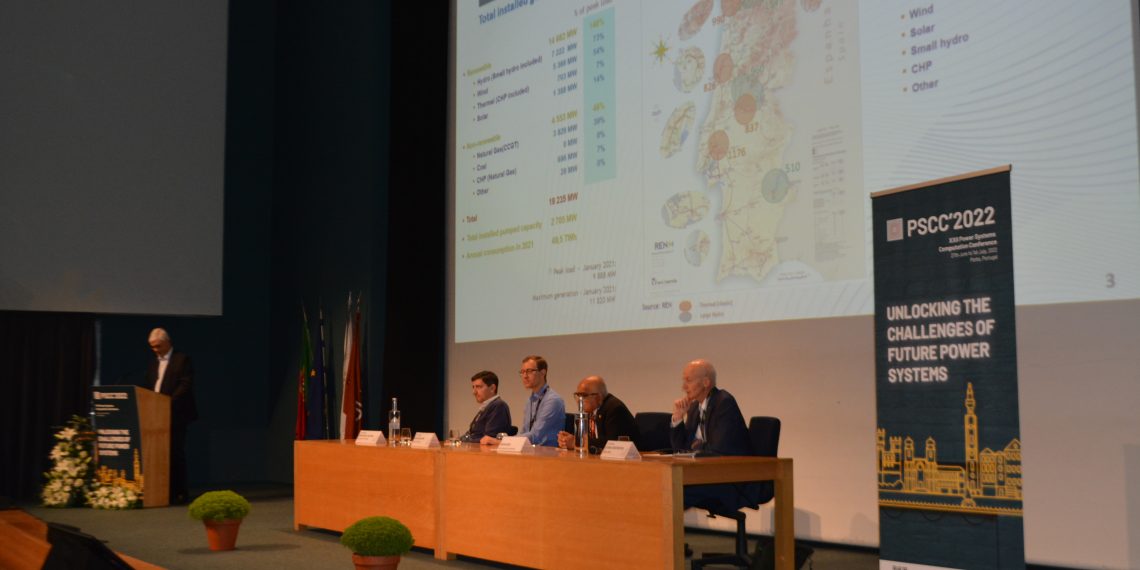Between June 27 and July 1, the city of Porto hosted the PSCC 2022: XXII Power Systems Computation Conference, one of the major international conferences in the field of energy systems; this year’s edition was organised by INESC TEC.
Over five days, close to 380 people gathered at the Faculty of Engineering of the University of Porto, to attend presentations, tutorials, thematic sessions, and discussion panels. The event also featured the presentation of papers, with 226 works accepted and distributed over 40 parallel sessions. With a particular emphasis on Portugal, the event welcomed participants from several countries: the United States of America, France, Spain, Canada, Australia, Brazil, Germany, Japan, and the United Kingdom, among others.
The conference addressed current themes associated with the energy transition in electrical power systems, particularly the following: planning and management of electrical power systems with large volumes of uncertainties, modelling and performance analysis of electrical power system control solutions, information and communication technologies for the modelling and operation of electrical power systems, data analysis and computational techniques applied to electrical power systems.
João Peças Lopes, associate director of INESC TEC and chairman of the Local Organising Committee of PSCC 2022, stated that “the event was quite successful, showing that face-to-face networking remains crucial to share knowledge and experience, while contributing with solutions to develop the electrical power system of the future, in a scenario of fast energy transition”.
Held every two years since 1963, the PSCC acts as an international forum for the exchange of knowledge and experiences on the latest developments in the field of energy systems; this year marked the organisation of the 22nd edition of the conference. This year, the event returned to a face-to-face model, after a break caused by the pandemic – which forced the last edition to take place exclusively online.
The INESC TEC researcher mentioned in this news piece is associated with UP-FEUP.



 News, current topics, curiosities and so much more about INESC TEC and its community!
News, current topics, curiosities and so much more about INESC TEC and its community!